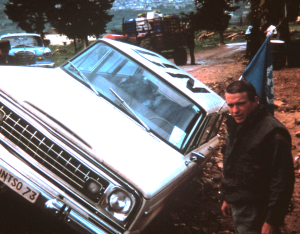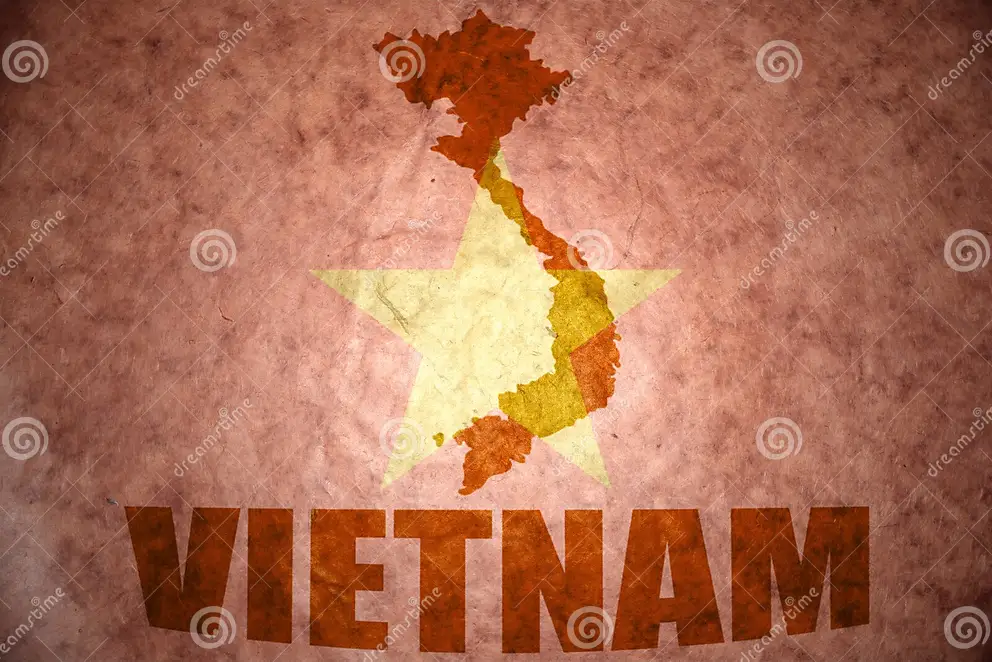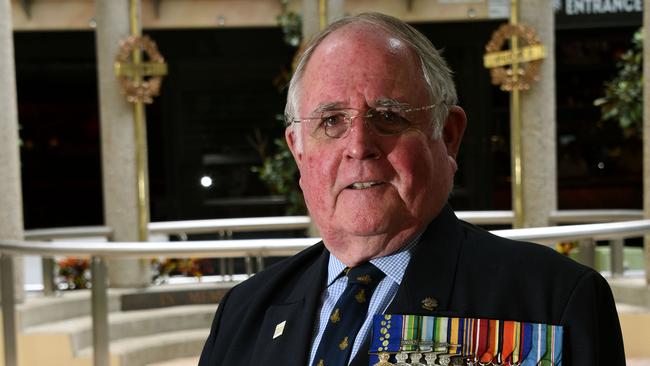A visit to Greece bagged a great variety of aircraft from many nations flying low in the valleys. A personal highlight was for myself to photograph an F-4 Phantom flying low level and with its retirement from the Hellenic air force due soon the clock was ticking. A second first was two capture not one but four Mirage 2000 again from the Hellenic air force flying in the valley. This was their first known low level run in their own country. Other aircraft to drop into the valley where, F-16 From the Romanian Air Force F-16 from the Hellenic air force Eurofighter typhoon from The Royal Saudi Air Force Dassault Rafale from the French Navy Dassault Rafale from the Quatar Emiri air force
Prime Minister Anthony Albanese has recommended a raft of senior ADF leadership changes to the Governor-General.
Vice Chief of the Defence Force Vice Admiral David Johnston AC, RAN, will be appointed as the new Chief of the Defence Force, replacing retiring Chief General Angus Campbell AO, DSC, the Prime Minister’s office confirmed this morning (9 April).
The changes are subject to the Governor-General’s consideration and approval, with the changes expected to take effect in July.
VADM Johnston joined the Australian Defence Force in 1978 and has served as the Vice Chief of the Defence Force since 2018.
Under the appointments, Air Marshal Robert Chipman AO, CSC, will be appointed as Vice Chief of Defence Force, having served as Chief of the Air Force since July 2022.
In his place, Air Vice-Marshal Stephen Chappell, DSC, CSC, OAM, will be appointed Chief of the Air Force, having served as the head of military strategic commitments.
The Prime Minister’s office has also confirmed that the Chief of the Defence Force and secretary of Defence, Greg Moriarty, recommended several additional appointments within the ADF to Minister for Defence Richard Marles.
Under the recommendations, Major General Susan Coyle, AM, CSC, DSM, is expected to replace Lieutenant General John Frewen, AO, DSC, as Chief of Joint Capabilities.
Just a reminder that Julie and I heading of tomorrow with my 35 Sqn mate, Geoff Hall and Sandra, for our annual historical hotel tour in NSW. We leave for Tenterfield in the morning on the first leg of a four-week adventure. I will be posting as often as possible, depending on internet, something I expect to not be available in some location we will be visiting. We plan to have ANZAC Day in Dubbo this year.
Please all stay well.
Ray
Australia’s new Amphibious Armoured Combined Arms Brigade must be able to meet the most demanding land challenges in Australia’s Area of Primary Defence Interest. Does it have all the required capabilities?
Ever since the release of this proposed acknowledgment, my anger has only intensified. My Frontline and inbox are overflowing with messages of disgust. Sub-branch presidents and secretaries alike are expressing vehement opposition to any political interference in ANZAC Day.
One RSL sub-president responded to a member’s inquiry about why this travesty was occurring with a bleak truth: “While I sympathize with your outrage, we’re shackled by the government’s dictates. They dictate the rules for current serving members’ participation, including the inclusion of a Welcome to Country.”
If this is indeed the reality, then we are doomed to witness ANZAC Day and its solemn promise to honour the fallen being hijacked by those we’ve entrusted to safeguard its sanctity and the memory of those who sacrificed for our freedom.
Below is an email from Roger Wickham just one of the many.
CLICK LINK
Following the rejection of the proposal to grant Indigenous Australians a Voice to Parliament in a 60:40 referendum outcome, it has been disclosed by the Australian Electoral Commission that over $80 million was expended by various groups advocating for both sides of the issue.
The “Yes” campaign, which supported the proposal, outspent the “No” campaign by more than double. Approximately $55 million was spent by the proponents of the referendum, while the opposing groups spent upwards of $25 million. Under the law, any donations exceeding $15,200 are required to be disclosed.
Australians for Indigenous Constitutional Recognition, leading the pro-Voice campaign (Yes23), emerged as the top spender, allocating $43.8 million towards their cause, with donations totalling $47.5 million. The University of New South Wales (UNSW), housing the Uluru Statement from the Heart, received $11.12 million in donations, spending $10.3 million.
On the opposing side, Australians for Unity (also known as Fair Australia) spent $11.1 million, while Advance Australia, a conservative political lobby group, spent $10.3 million, despite receiving only $1.3 million in declarable donations. Clive Palmer’s company, Mineralogy, invested $1.93 million against the Voice proposal.
Additionally, the Voice No Case Committee, Recognise a Better Way group, and other entities combined spent $188,356 opposing the referendum.
Noteworthy donations to the “Yes” campaign came from Silver River Investment Holdings, with $250,000 each from Riley Street Car Park Pty Ltd and Harbig Properties Pty Ltd. The largest individual contribution to the “Yes” campaign came from the Paul Ramsay Foundation, which donated $7.01 million.
Corporations such as ANZ, Commonwealth Bank, Westpac, Woodside Energy, BHP, Rio Tinto, Wesfarmers, Woolworths, Telstra, and Qantas, among others, supported the pro-Voice campaigns with significant contributions. Several unions, including the Australian Education Union and the Australian Council of Trade Unions, also donated to the cause.
Former Prime Minister Malcolm Turnbull contributed $50,000 to the “Yes” campaign, while the progressive campaign group GetUp! received $1.71 million in donations, spending $1.37 million on its pro-Voice efforts.
Furthermore, independent MPs and organizations like Waverley Council also supported the “Yes” campaign financially.
The rejection of the proposal has sparked varied interpretations, with proponents of the “No” campaign emphasizing concerns about division, while others advocate for focusing on addressing societal issues directly.
 LAST Saturday three unarmed UN military observers and a Lebanese interpreter were injured by an explosion near Rmeish inside Lebanon’s southern border with Israel.
LAST Saturday three unarmed UN military observers and a Lebanese interpreter were injured by an explosion near Rmeish inside Lebanon’s southern border with Israel.
One was an ADF member serving with the UN Interim Force in Lebanon.
The Israel Defence Forces (IDF) staunchly denied initial reports it was responsible.
That Friday the IDF claimed to have eliminated a “senior Hezbollah commander” in a targeted drone strike in the town of Bazouriye, 32km to the northwest.
The IDF alleged Ali Naim directed attacks against Israeli civilians and released footage of that strike.
On January 12, 1988 ADF Captain Peter McCarthy was killed in South Lebanon when his jeep struck an anti-tank landmine.
CLICK LINK to continue reading.
This is a three-part documentary ‘VIETNAM: 50 Years Remembered’ Each video runs for about 50 minutes.
Episode 1
Episode 2
Episode 3









